Contested Will: Who Wrote Shakespeare? 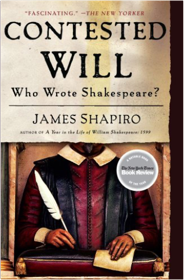 As Contested Will makes clear, much more than proper attribution of Shakespeare’s plays is at stake in this authorship controversy. Underlying the arguments over whether Christopher Marlowe, Francis Bacon, or the Earl of Oxford wrote Shakespeare’s plays are fundamental questions about literary genius, specifically about the relationship of life and art. Are the plays (and poems) of Shakespeare a sort of hidden autobiography? Do Hamlet, Macbeth, and the other great plays somehow reveal who wrote them? Shapiro is the first Shakespeare scholar to examine the authorship controversy and its history in this way, explaining what it means, why it matters, and how it has persisted despite abundant evidence that William Shakespeare of Stratford wrote the plays attributed to him. This is a brilliant historical investigation that will delight anyone interested in Shakespeare and the literary imagination. The Playbook: A Story of Theater, Democracy, and the Making of a Culture War 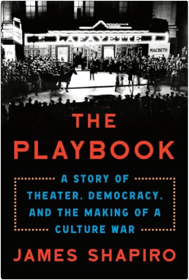 Shakespeare in a Divided America: What His Plays Tell Us About Our Past and Future 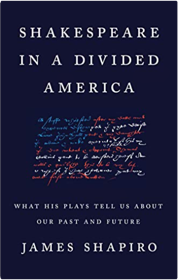 A Year in the Life of William Shakespeare: 1599 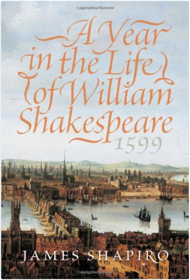 Shakespeare wrote four of his most famous plays: Henry the Fifth, Julius Caesar, As You Like It, and, most remarkably, Hamlet; Elizabethans sent off an army to crush an Irish rebellion, weathered an Armada threat from Spain, gambled on a fledgling East India Company, and waited to see who would succeed their aging and childless queen. James Shapiro illuminates both Shakespeare’s staggering achievement and what Elizabethans experienced in the course of 1599, bringing together the news and the intrigue of the times with a wonderful evocation of how Shakespeare worked as an actor, businessman, and playwright. The result is an exceptionally immediate and gripping account of an inspiring moment in history. The Year of Lear: Shakespeare in 1606 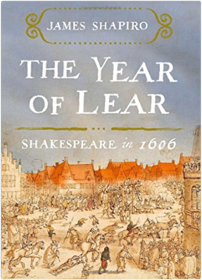 In the years leading up to 1606, since the death of Queen Elizabeth and the arrival in England of her successor, King James of Scotland, Shakespeare’s great productivity had ebbed, and it may have seemed to some that his prolific genius was a thing of the past. But that year, at age forty-two, he found his footing again, finishing a play he had begun the previous autumn—King Lear—then writing two other great tragedies, Macbeth and Antony and Cleopatra. It was a memorable year in England as well—and a grim one, in the aftermath of a terrorist plot conceived by a small group of Catholic gentry that had been uncovered at the last hour. The foiled Gunpowder Plot would have blown up the king and royal family along with the nation’s political and religious leadership. The aborted plot renewed anti-Catholic sentiment and laid bare divisions in the kingdom. It was against this background that Shakespeare finished Lear, a play about a divided kingdom, then wrote a tragedy that turned on the murder of a Scottish king, Macbeth. He ended this astonishing year with a third masterpiece no less steeped in current events and concerns: Antony and Cleopatra. The Year of Lear sheds light on these three great tragedies by placing them in the context of their times, while also allowing us greater insight into how Shakespeare was personally touched by such events as a terrible outbreak of plague and growing religious divisions. For anyone interested in Shakespeare, this is an indispensable book. Shakespeare in America: An Anthology from the Revolution to Now: Library of America #251 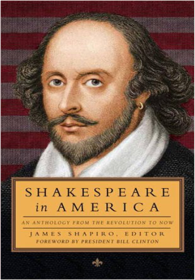 From the Hardcover edition. |


Delicious Library
Collection Total:
3,640 Items
3,640 Items
Last Updated:
Nov 2, 2025
Nov 2, 2025
 Made with Delicious Library
Made with Delicious Library